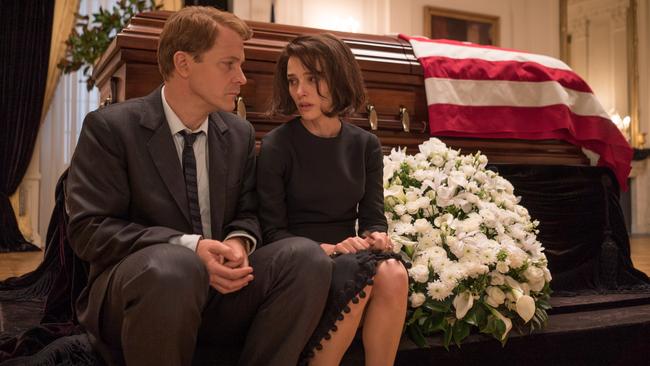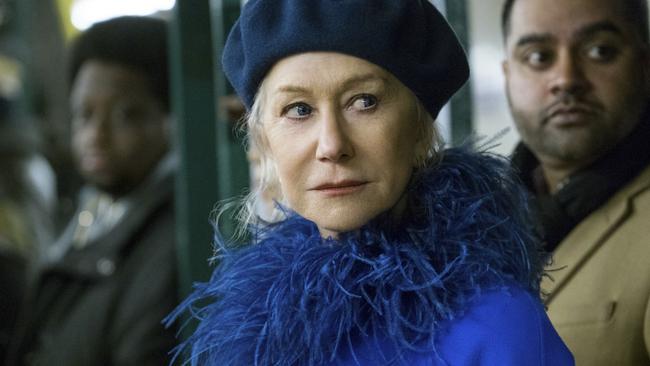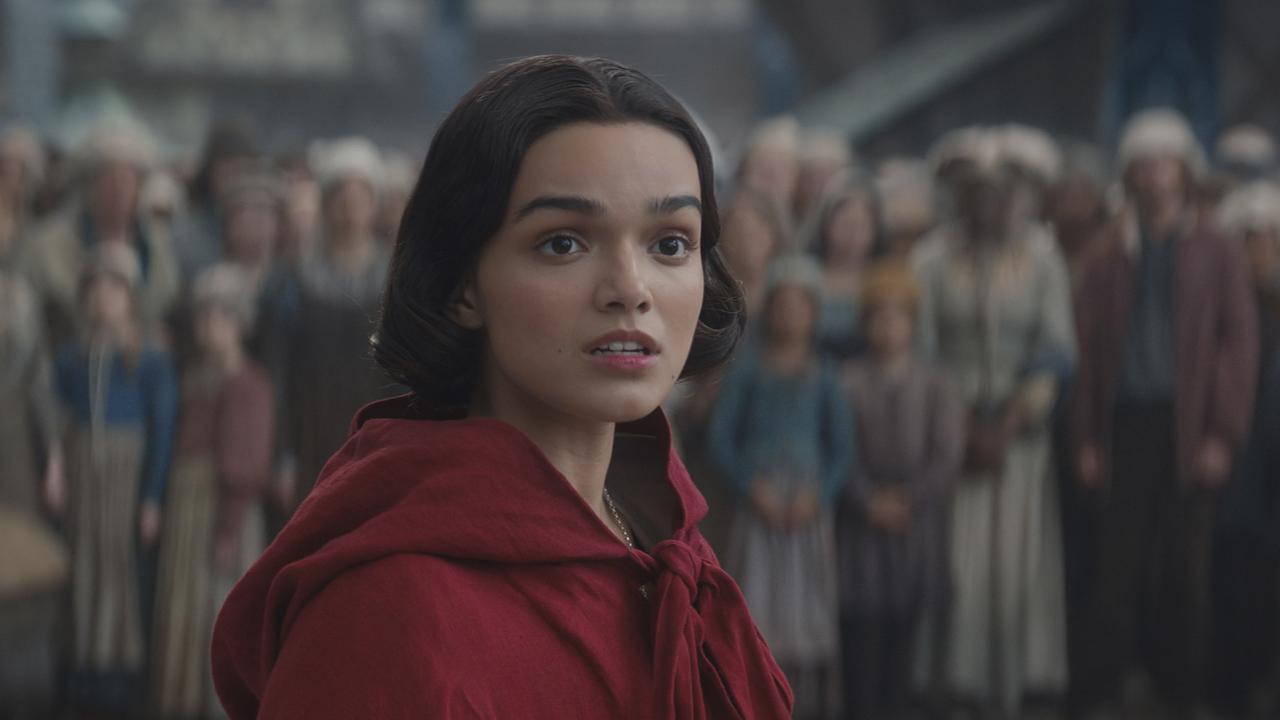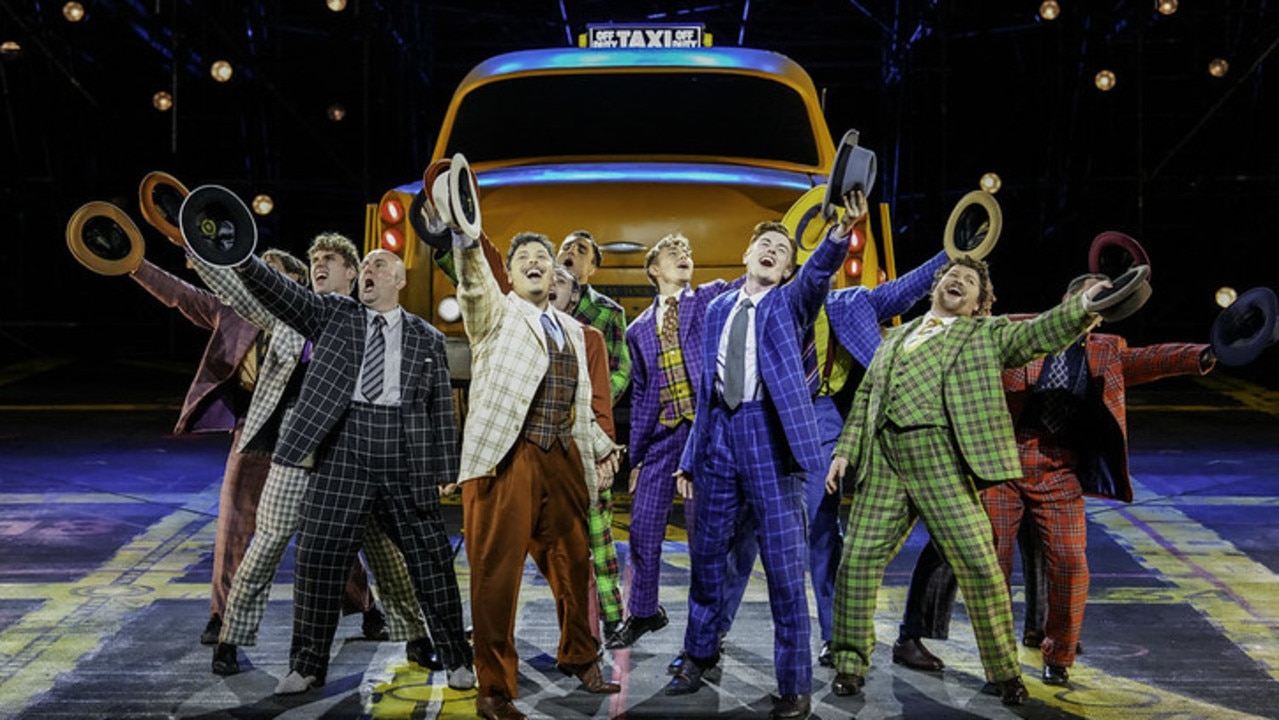Film reviews: Larrain’s Jackie, Frankel’s Collateral Beauty
Natalie Portman not only looks like Jackie Kennedy, she sounds like her too. At times this feels like a documentary.

Jackie, the first English-language film made by the talented Chilean director Pablo Larrain, invites us behind the scenes in the aftermath of the assassination of president John F. Kennedy in 1963, to witness the tragedy from the perspective of first lady Jacqueline Bouvier Kennedy. It’s almost impossible for us to imagine what Jackie Kennedy went through on November 22 of that year: one moment she is the first lady, travelling alongside her husband in a motorcade in the centre of Dallas; the next moment she is cradling his shattered head in her arms and, a few short hours later, she is standing mutely by as the vice-president, Lyndon B. Johnson, is sworn in as president on board the flight taking the murdered JFK back to Washington.
In the confusing, sometimes chaotic days that follow, Jackie has little time for private grief. She has to tell her young children, Caroline (five days short of her sixth birthday) and John Jr (almost three); she has to plan her husband’s funeral and with it his legacy; and, of pressing importance, she has to vacate the White House to make way for the new president and his wife, Lady Bird.
The story of the Kennedy assassination has been depicted more than once on screen, starting with the footage filmed by Abraham Zapruder in Dealey Plaza as the events unfolded. The tragedy was the source for conspiracy theory thrillers (David Miller’s Executive Action, 1973 and Oliver Stone’s JFK, 1991), several TV dramas and miniseries, and the little-seen feature film Parkland (2013), Peter Landesman’s harrowing re-creation of the event, in which Jacki Weaver gives a remarkable performance as the mother of Lee Harvey Oswald.
Larrain’s film is different in that it focuses unflinchingly on Jackie. Clearly the casting of the role was of crucial importance and with Natalie Portman, Larrain has been completely successful — Portman not only looks a lot like Jackie, she sounds like her too. At times you’re almost lured into thinking you’re watching a contemporary documentary.
Indeed, at one point you are. Larrain and screenwriter Noah Oppenheim show, in flashback, extracts from the 1962 network television special A Tour of the White House with Mrs John F. Kennedy, in which Jackie somewhat nervously acts as a guide for the TV audience as she explains the changes she’s made to the furnishings and drapes of one of the world’s most famous buildings. The authentic grainy black- and-white footage is augmented by enacted scenes in which Jackie is encouraged and supported by her loyal personal assistant, Nancy Tuckerman (Greta Gerwig).
From the beginning of the film, with its mournful, atonal music score by Mica Levi, it’s obvious that this is no conventional dramatisation of the events that arguably brought to an end America’s innocence. A scene in which Jackie washes the blood from her hair when she finally has an opportunity to take a shower at the end of that awful day is an indication that the director isn’t making compromises.
The insights into Jackie are provided in two principal ways: by an interview she did with a journalist (Billy Crudup) — he’s unnamed in the film, though in fact his name was Theodore H. White and he was writing for Life magazine — in which she guardedly explores her feelings while making it clear she won’t allow anything of which she doesn’t approve to be printed; and by a discussion with her priest (John Hurt), to whom she can talk about the murdered president’s shortcomings as a husband.
The most interesting scenes, though, are those involving her brother-in-law, Bobby. Peter Sarsgaard plays this role and though he’s perfectly fine in the part he doesn’t resemble the real Bobby Kennedy in the slightest. This is a trifle disconcerting, given that some pains have been taken to cast the other familiar characters with actors who bear at least a passing resemblance to them — John Carroll Lynch is a very convincing Johnson, for instance.
Despite this considerable drawback, it’s intriguing to see the film explore the barely concealed animosity between the Kennedys and the Johnsons, all of which adds to Jackie’s courageous determination to control, to the extent that she is allowed, the way the funeral is staged and conducted. Ultimately, though, the power of Jackie lies in Larrain’s determination to steer clear of sentimentality wherever possible. He is not averse to exploring some of the more contentious aspects of the Kennedy legacy, and he has the benefit of the profoundly intelligent and nuanced performance from Portman. Having said that, it’s hard not to shed a tear when Jackie plays what was supposedly JFK’s favourite recording, Richard Burton’s rendition of the Lerner and Loewe showstopper Camelot, with its lyric about “the one brief, shining moment” that, for many, characterised the Kennedy presidency.

Four accomplished British actresses play leading roles in Collateral Beauty: Helen Mirren, Kate Winslet, Naomie Harris and Keira Knightley. That’s got to be a good start for any drama, but director David Frankel and screenwriter Allan Loeb, after setting up a tolerably intriguing narrative, make unwise decisions that allow the movie to drift away into maudlin insignificance.
Will Smith plays Howard, the guiding figure at a New York agency he owns in partnership with Whit (Edward Norton), Claire (Winslet) and Simon (Michael Pena). He is described as a “poet-philosopher”, and his professional skills fall away dramatically after the death of his six-year-old daughter and the collapse of his marriage. He writes letters to abstracts — Time, Love and Death — and he lurks outside a centre for grieving parents run by Madeleine (Harris), though he never ventures inside.
His three partners have their own concerns. Whit’s extramarital affair caused his wife to leave him and his daughter to despise him. Claire has placed her career ahead of her personal life. Simon has health problems. They need Howard to inspire them again and, in the process, to attract more business to the company, and they hit on the strange but inspired idea of hiring a trio of actors — Brigitte (Mirren), Amy (Amy) and Raffi (Jacob Latimore) — who are awaiting funding for their new off-Broadway play. The idea is that the three will pose as Love (Knightley), Time (Raffi) and Death (Brigitte) and make connection with Howard.
For about half an hour this odd but intriguing concept seems to be working. The screenplay bristles with literary allusions, the cast is excellent and director Frankel, who scored a success with The Devil Wears Prada in 2006, brings a level of sophistication to the material rare in contemporary Hollywood.
Sadly, it doesn’t last. As it proceeds the plot becomes increasingly predictable and the “surprise” elements will surprise only the most credulous. Smith, in a role that was at one time to have been played by Hugh Jackman, seems unable to adjust to the painfully melodramatic scenes in what has to be the first major disappointment of the new year.
Jackie (MA15+)
4 stars
National release from Thursday
Collateral Beauty (M)
2.5 stars
National release from Thursday






To join the conversation, please log in. Don't have an account? Register
Join the conversation, you are commenting as Logout